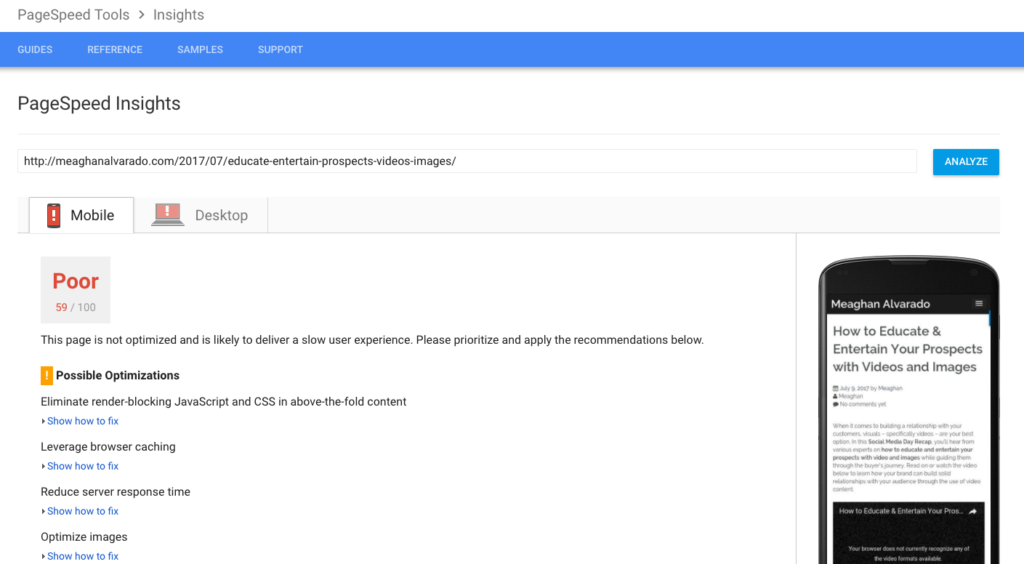How Website Load Time on Mobile Affects Your Facebook Page’s Reach
Earlier this week Facebook announced that they’ve once again changed the algorithm delineating which content to show in users’ News Feeds. Content shared from websites with slow load times on mobile will decrease in views over the coming months.
“During the coming months we’re making an update to News Feed to show people more stories that will load quickly on mobile and fewer stories that might take longer to load, so they can spend more time reading the stories they find relevant.”
While this should fire you up to check on your own site’s load time, don’t forget about the OPC (Other People’s Content) that you’re sharing. If you share a lot of OPC from a slow moving website, your Page’s overall reach will begin to lessen.
Facebook went on to say that the user’s “current network connection” will also be considered. If the user has a slower network connection, and the web page URL you’re sharing has a long load time, it will appear lower in their News Feed. Obviously, you don’t have control over their network connection, so the focus is on the time it takes your website to load that page on mobile.
Testing and Improving Your Pages’ Loading Times
The first thing you’ll need to do is check mobile load time. Facebook provided a list of Best Practices to Improve Mobile Site Performance that included a few options for evaluating current load time. Below is an example of the information you’ll receive on PageSpeed. This tool was easy to use and very self-explanatory. It even provides suggestions on how to optimize your page further.
I also tried a few of the other tools on Facebook’s list. Instead of an overall grade, many gave me specific load times and were honestly overwhelming with the amount of data provided. Those tools are more for a developer, while the data from PageSpeed offered suggestions I could follow through on myself with a little bit of digging.
As a site owner, this may feel frustrating, but looking at it from a user perspective this algorithm change makes sense. Improving your website for a better mobile experience is necessary in today’s world, especially if you want to reach your audience on Facebook. According to Venture Beat, 56.5% of users only log in to Facebook from mobile. Another eye-opening data point – there are over 1.74 billion mobile monthly active users on Facebook. If you don’t speed up your pages load time over the next few months be prepared to see your Facebook referral traffic fall.
If you don’t improve your loading time over the next few months, be prepared to see your Facebook referral traffic drop. Now more than ever before is the time to consider the user experience of your website.


